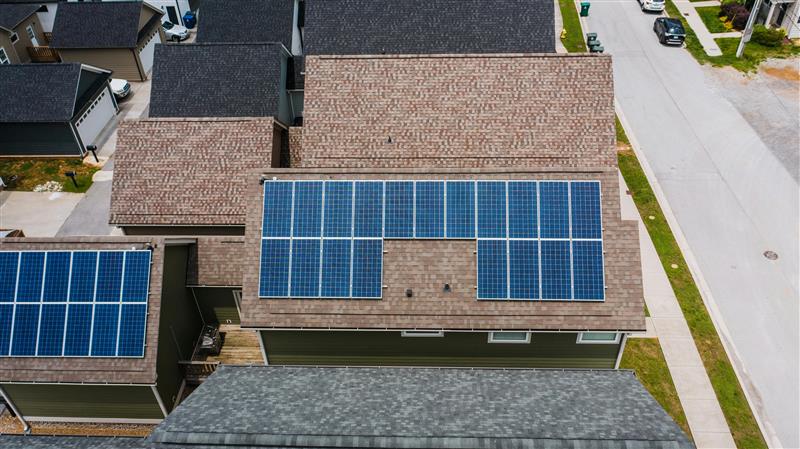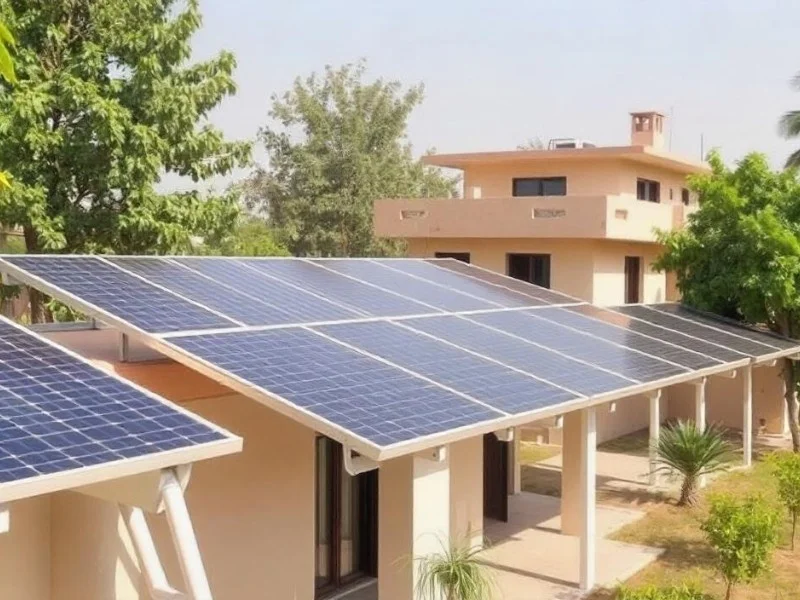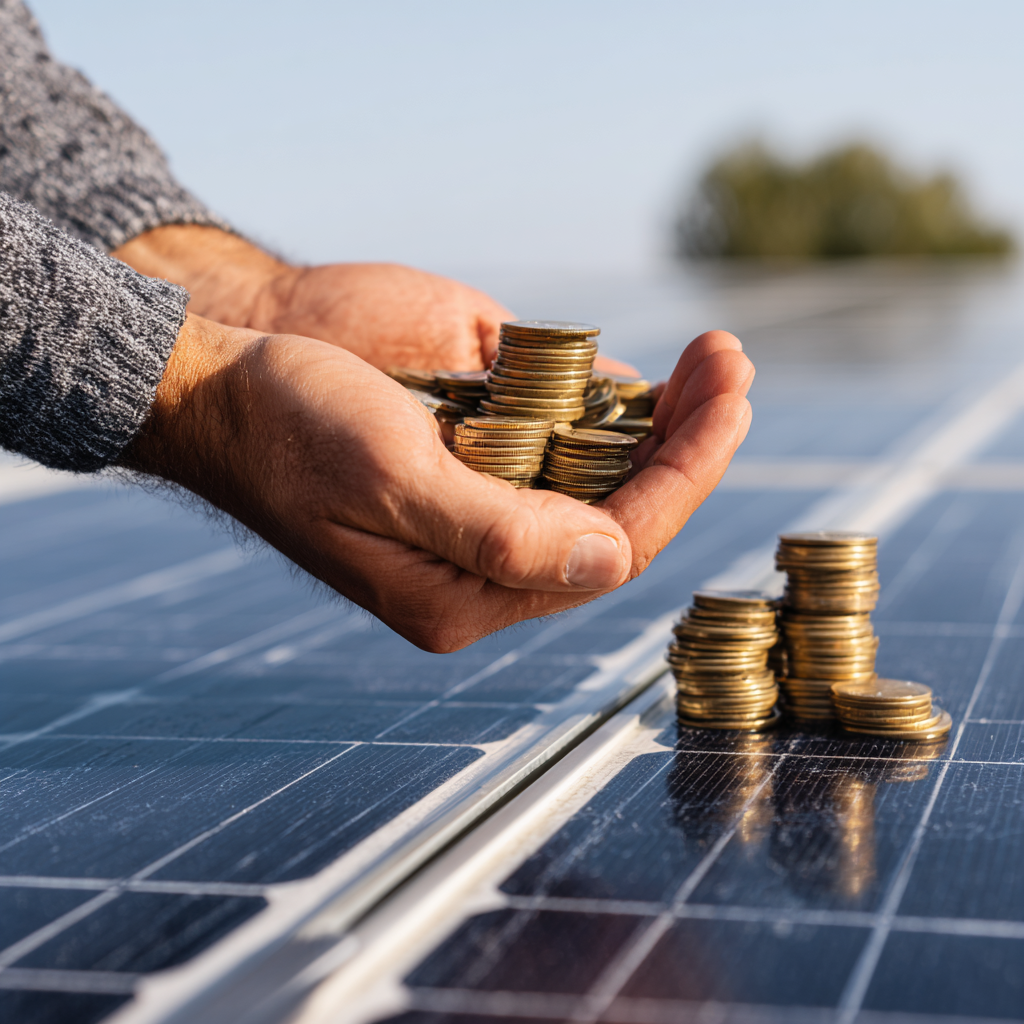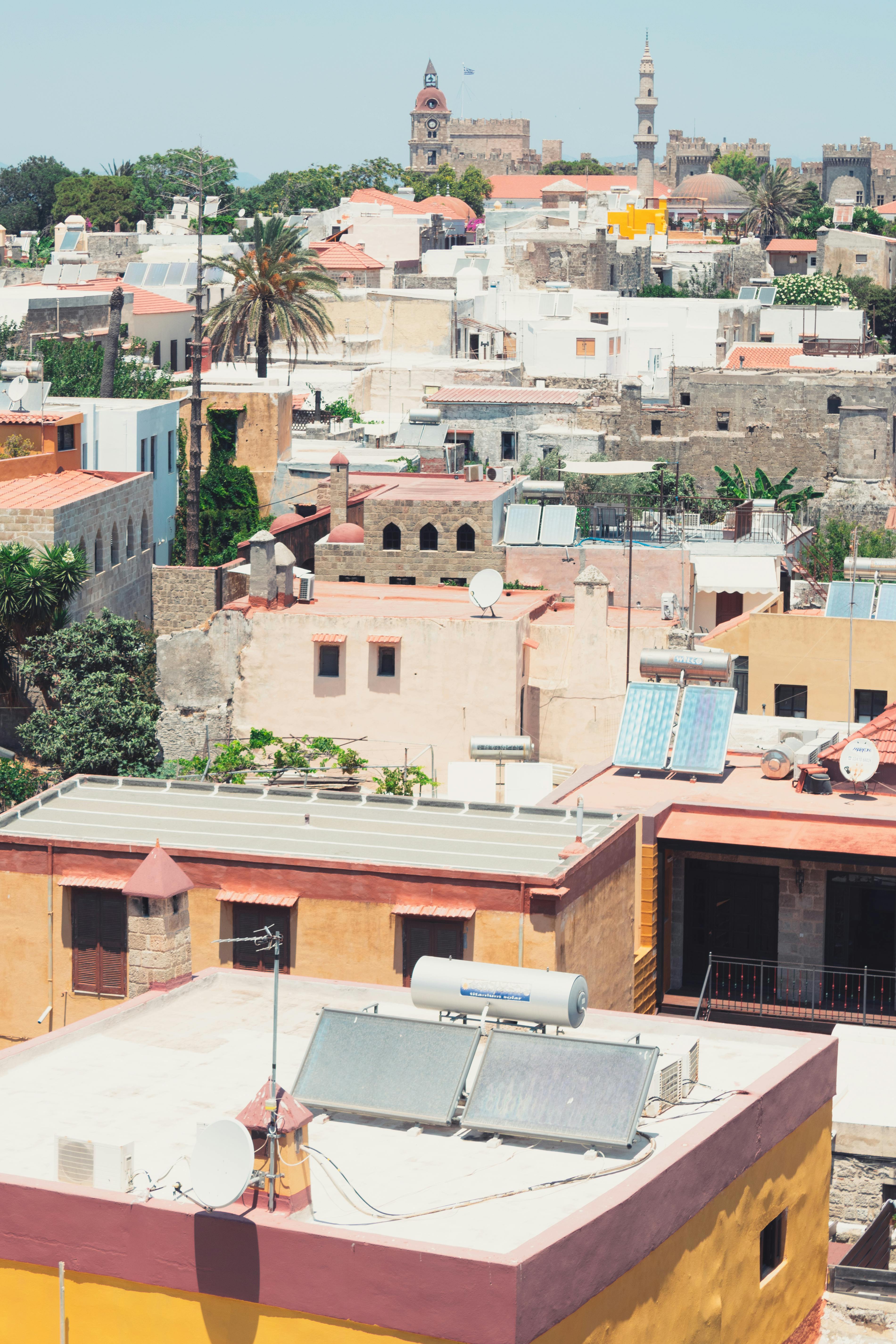Unlock the mystery of your solar loan rate of interest!
What Is Interest Rate?
Interest rate is the cost you incur for borrowing money. Think of interest as the fee you pay to the lender for the privilege of using their funds. Understanding this concept is crucial when considering any loan, especially for significant investments like distributed solar or solar farms.
Flat Interest Rate Simplified
Flat interest rate is calculated on the entire original loan amount throughout its term. This means that the interest is charged on the principal amount for the entire duration of the loan. While this method is straightforward and easy to understand, it can often result in higher overall interest payments compared to other methods.
Imagine a flat horizon line with evenly spaced rupee signs. Each sign represents a consistent charge over time, making it predictable but potentially more expensive.
.png)
Reducing Interest Rates Unveiled
Reducing interest rates, also known as diminishing or declining balance rates, apply to the outstanding loan balance. As you pay down the principal, the interest is recalculated on the reduced balance. This method often results in lower total interest costs over the life of the loan.
.png)
Flat vs. Reducing Rates: A Comparison
When comparing flat and reducing rates, the main difference lies in how interest is calculated and applied. Flat rates are straightforward, charging interest on the full loan amount throughout the term. In contrast, reducing rates adjust the interest charge based on the remaining loan balance, which can lead to lower overall interest costs.
Real-world Scenario: ₹1,000,000 Loan
Let’s take a practical example to understand this better. For a ₹1,000,000 loan over 5 years at a 14% reducing rate, the total interest paid would be approximately ₹396,095. To achieve the same interest cost with a flat rate, you would need a flat rate of approximately 8%. This example demonstrates how reducing rates can lead to significant savings.
.png)
Why Understanding This Matters
Understanding the difference between flat and reducing interest rates can have a substantial impact on your financial decisions. By choosing the right loan type, you can potentially save thousands of rupees over the lifetime of the loan. This knowledge is especially valuable when financing solar installations, where the goal is to maximize savings and efficiency.

.webp)
.webp)
.webp)
.png)




.jpg)
.jpg)






.jpg)





.jpeg)












.jpg)


.png)
.png)
.png)
.png)
.png)
.png)




.jpg)
